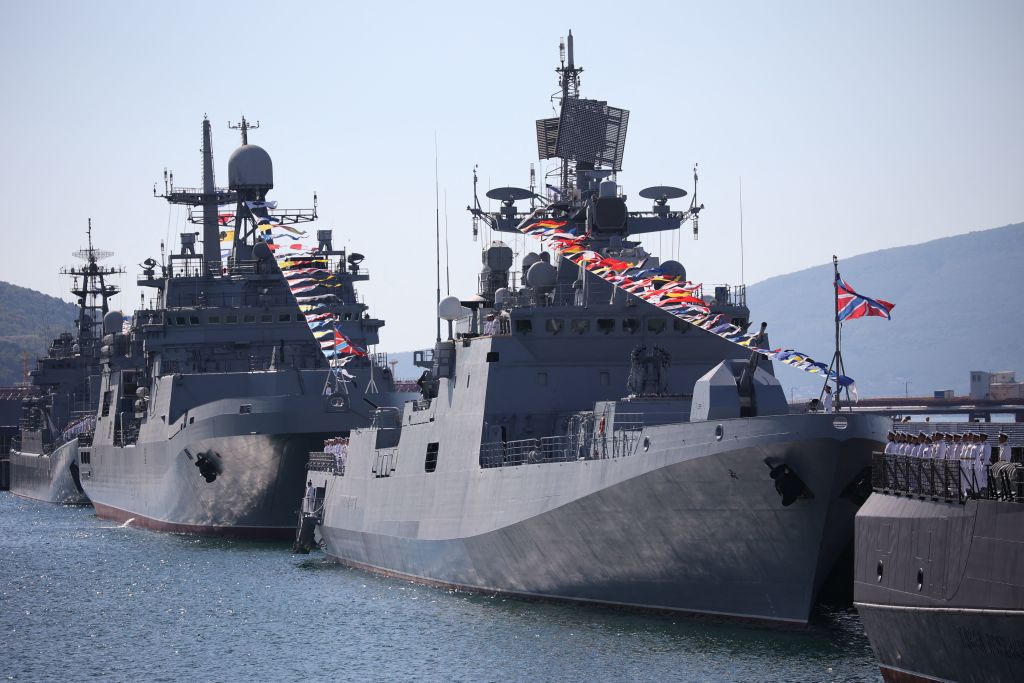ADF STAFF
Mired in their fight against the paramilitary Rapid Support Forces (RSF), the Sudanese Armed Forces (SAF) appears ready to grant Russia a long-sought foothold on the Red Sea in exchange for weapons.
“The Army is in desperate need of weapons, ammunitions and spare parts for its Russian-made warplanes,” Sudanese analyst Osman Al Mirghany told the North Africa Post. “Offering Russia a naval base in return for them is its best option.”
Sudanese officials met with their Russian counterparts on the sidelines of the recent International Economic Forum in St. Petersburg to discuss establishing a Russian naval base. The meeting revived talks that began in 2007 under former dictator Omar al-Bashir.
Talks stalled following the 2019 coup that drove al-Bashir from power, but SAF chief Gen. Abdel Fattah al-Burhan, head of Sudan’s Transitional Sovereignty Council and the de facto Sudanese president, has revived them in the face of fierce opposition from the RSF.
During discussions in April, Russian Deputy Foreign Minister Mikhail Bogdanov promised the Sudanese government “unrestricted qualitative military aid,” according to the Sudan Tribune. That could include Russian troops on Sudanese soil, Bogdanov said.
Sudanese Lt. Gen. Yasir al-Atta has emphasized that the Russian base would be for logistics and refueling, not a fully equipped naval facility. He has said Sudan could be open to other nations establishing operations on Sudanese soil in a manner similar to Djibouti.
Analysts say the agreement is more evidence of Russia’s ambitions to expand its operations in Africa. Those operations include two countries bordering Sudan — Libya and the Central African Republic — through which the RSF has received aid from the mercenary Wagner Group.
A bigger question is whether the agreement with Russia marks a shift in Russia’s strategy of playing both sides of the Sudanese conflict.
Since fighting broke out, the Russian government has supported the SAF while its mercenary Africa Corps (formerly the Wagner Group) remains allied with the RSF, which controls major gold mines in the west of Sudan. Russia relies on those gold mines to get around international sanctions to fund its invasion of Ukraine.
Data from the Sudanese Central Bank showed that, between February 2022 and February 2023, Wagner and its affiliates Meroe Gold and M Invest smuggled an estimated $1.9 billion in gold out of the country, an amount nearly equal to Sudan’s legitimate mining operations in 2022.
Fighting between the SAF and RSF has disrupted some of those Russian gold operations, which could lead to Russia curtailing its relationship with the RSF, according to analyst Liam Karr with the Institute for the Study of War.
The SAF has its own access to Sudan’s gold reserves.
“The shift in Russian support in favor of the SAF may free up Russian resources to use in Ukraine and other areas of Africa,” Karr wrote recently. On the other hand, Samuel Ramani, an associate fellow at the Royal United Services Institute, argues that Russia’s Sudan strategy of playing both sides is a way of hedging its bets.
“They recognize that in the end, neither side will be able to completely destroy the other,” Ramani told The New Arab. “The Russians would want to be able to maintain close ties with whoever is in power when this is all over.”
On thing that is clear to observers: Russia’s agreement with the Sudanese military could amplify the level of violence in the war-torn country.
“While Russia’s diplomatic maneuvers look unlikely to deliver game-changing support for the SAF, the creation of alliances predicated on procuring arms and strengthening military cooperation does not bode well for the possibility of a political resolution for Sudan’s conflict in the near term,” analyst Elfadil Ibrahim wrote recently for The New Arab.

